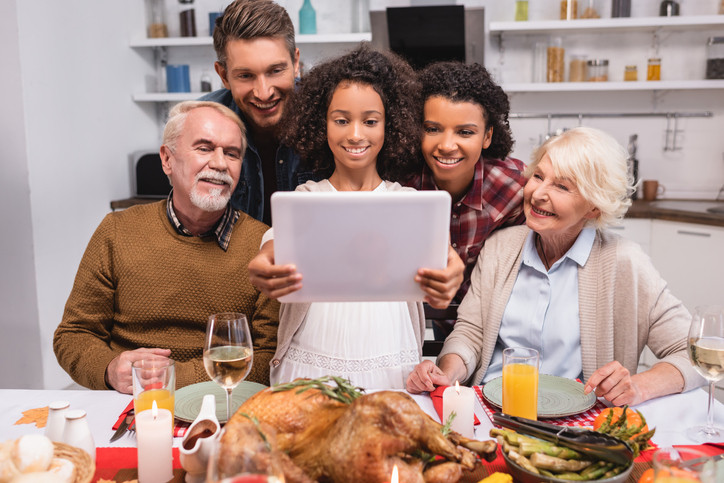The holiday season is a cherished time of year filled with joy, togetherness, and tradition. While the spirit of celebration brings people closer, it also calls for mindful practices to ensure safety—especially in times of heightened health awareness. Whether you’re planning in-person festivities or virtual gatherings, taking a few thoughtful precautions can make the season safe and memorable for everyone.

Why Holiday Safety Matters More Than Ever
As we continue to navigate through public health challenges like COVID-19 and the seasonal flu, holiday celebrations present both an opportunity to reconnect and a risk of exposure. Vulnerable populations—such as the elderly, young children, or immunocompromised individuals—may be particularly at risk during group gatherings. That’s why following evidence-based safety practices is crucial.
Pre-Gathering Preparations for a Healthier Holiday
Establish Clear Health Ground Rules
Before planning your holiday gathering, communicate openly with your guests about expectations. Set guidelines for safety measures such as mask-wearing, hand hygiene, and staying home if feeling unwell. Transparency helps everyone feel more comfortable and respected.
Promote Virtual Gatherings for High-Risk Loved Ones
Thanks to digital platforms, family and friends can still share holiday cheer from a distance. Consider hosting:
- A virtual holiday baking challenge
- Online gift exchange or Secret Santa
- Virtual caroling or karaoke night
- Live-streamed tree lighting or holiday card decorating
These activities not only keep everyone safe but can be surprisingly fun and creative.
Strengthen Immunity with Vaccinations
COVID-19 and Flu Shots
One of the most effective tools in preventing the spread of COVID-19 and influenza is vaccination. Encourage all eligible attendees to get vaccinated and stay up to date with booster shots. This helps safeguard those who cannot get vaccinated, such as infants or individuals with certain medical conditions.
Considerations for Immunocompromised Guests
Those with weakened immune systems may not develop full protection even after vaccination. In such cases, masks, physical distancing, and limiting exposure become even more critical. If you’re hosting someone at high risk, take extra care in implementing precautionary measures.
The Importance of Testing
When to Get Tested
Whether vaccinated or not, COVID-19 testing before and after holiday events adds a layer of protection. Test:
- If you’re experiencing any symptoms
- If you’ve recently been in a high-risk area
- Before traveling or attending large indoor gatherings
As Dr. Parvathi Somasundaram notes, early testing can also help identify candidates for treatments like monoclonal antibody therapy, which is most effective early in infection.
Masking Protocols for Holiday Events
Know When to Mask Up
Even if you’re fully vaccinated, the CDC recommends wearing a mask indoors in public spaces, especially in areas of high transmission. For unvaccinated individuals, masking is essential during both indoor and crowded outdoor events.
Types of Masks That Offer Better Protection
- Surgical Masks: Effective for general use
- N95/KN95 Masks: Offer higher protection, especially in crowded or enclosed spaces
- Cloth Masks with Filters: Good for added comfort and layered defense
Ensure that masks fit snugly over the nose and mouth for maximum efficacy.
Travel Tips for the Holiday Season
Safe Travel Practices
With airports and highways packed during the holidays, practicing safe travel is crucial. Follow these tips:
- Get tested before and after travel
- Keep hand sanitizer and masks easily accessible
- Avoid crowded terminals when possible
- Choose flexible travel plans in case of illness or emergency
Stay Informed
Check travel advisories and local COVID-19 regulations for both your destination and return location. Each state or country may have unique guidelines.
Don’t Ignore Symptoms
When to Stay Home
If you’re feeling unwell, even with mild symptoms, it’s best to sit this one out. Common symptoms like cough, fever, or loss of taste/smell could indicate a viral infection. Attending or hosting a gathering under these conditions could put others at risk.
Encourage Transparency
Create an environment where guests feel comfortable canceling if they’re unwell. Consider offering virtual participation options so no one feels left out.
Embrace the Holiday Spirit, Safely
Celebrating the season doesn’t have to come at the cost of health. With a little foresight and responsibility, you can create joyful memories while keeping everyone safe. A healthy holiday is a happy holiday—and the best gift you can give is peace of mind.
FAQs:
Q1: What are the safest ways to celebrate the holidays this year?
A: Hosting small outdoor gatherings, celebrating virtually, ensuring everyone is vaccinated, and following mask-wearing and hygiene practices are all safe options.
Q2: Should I get tested even if I’m vaccinated?
A: Yes, especially if you have symptoms or have been exposed. Testing can help prevent the spread of illness to vulnerable family members.
Q3: What should I do if someone at the gathering gets sick afterward?
A: Notify all attendees so they can monitor symptoms and get tested. Encourage transparency and kindness—these things can happen despite precautions.
Q4: How can I include elderly or high-risk family members?
A: Offer virtual participation or set up smaller gatherings with heightened safety measures to reduce their exposure.
Q5: Are masks still necessary at holiday events?
A: In many cases, yes—especially indoors or in high-transmission areas. Masks help protect both you and others from respiratory viruses.




